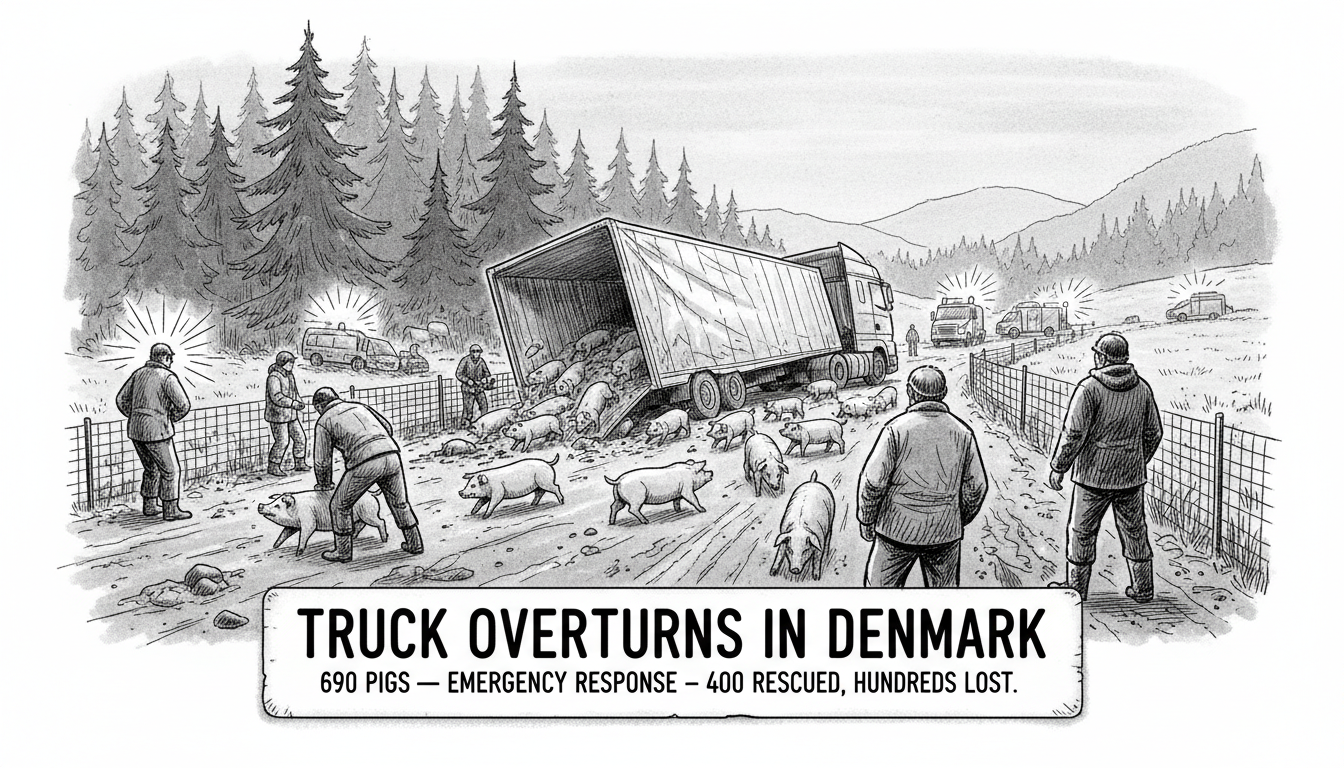A major livestock transport incident unfolded in Thy, Denmark when a truck carrying 690 young pigs overturned on Hurupvej near Vestervig. The accident occurred around 2 PM on Wednesday, triggering a substantial emergency response from local authorities.
Emergency services dispatched 10 personnel from Hurup and Thyholm stations, with an additional 15 responders joining from the Emergency Management Agency in Thisted. The coordinated effort involved multiple agencies working to manage the complex situation involving hundreds of live animals.
Troels Guldbrandtsen, the incident commander on site, described the challenging circumstances. All pigs were initially trapped inside the overturned vehicle. The young animals, each weighing approximately 30 kilograms, faced immediate danger in the confined space.
A veterinarian coordinated the difficult operation as it became clear many pigs couldn't be saved. Emergency workers managed to rescue approximately 400 live pigs from the wreckage. They established a temporary enclosure in a nearby field to contain the animals.
The rescued pigs were then transferred using a tractor to another truck for transport to an emergency shelter. Authorities indicated the animals will remain there to recover from stress before determining their future.
The truck was reportedly en route to Padborg when the accident occurred. Police spokesperson Lars Even from Central and West Jutland Police confirmed the likely cause was driver inattention. The vehicle's wheels slipped into a soft roadside verge, making recovery impossible.
Police confirmed the driver won't face charges related to the incident. This reflects standard procedure for accidents without evidence of criminal negligence under Danish traffic laws.
Livestock transport accidents present unique challenges for Danish emergency services. The country's substantial pork industry means animal transports are common on rural roads. This incident highlights the balance between agricultural logistics and animal welfare concerns that Scandinavian nations continuously address.
Denmark maintains strict regulations governing animal transport conditions and emergency protocols. The rapid response and established procedures demonstrated in this incident reflect the country's systematic approach to agricultural incidents. International readers should understand that Nordic countries typically have comprehensive systems for managing such events, though the emotional and economic impacts remain substantial for farmers and transporters involved.

